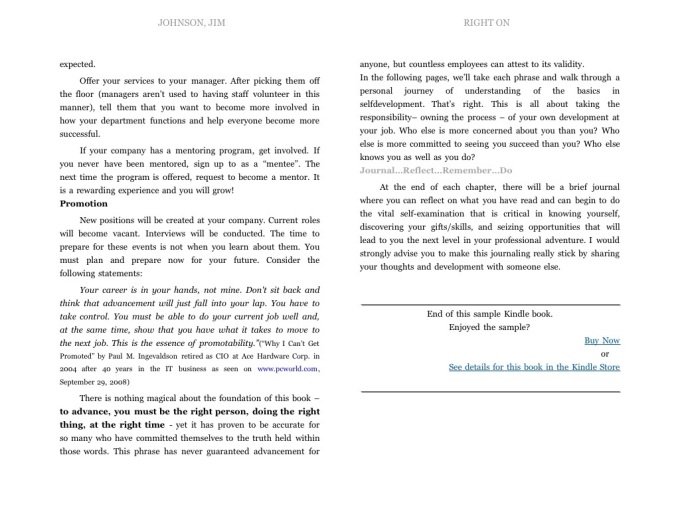
I have a friend who often says, “The things we do are what we really believe. Everything else is just talk.”
You would think with all our talk about leadership there would be few ideas left to explore. But the truth is, no matter how many posts you write, books you read, or conferences you attend there will always be a separation between what you say you believe and those actions you take to support those beliefs. That’s why we keep reading, keep writing, and keep searching. We need to be reminded. We look for inspiration.
With that in mind. Here are 5 things you say you believe about leadership but haven’t yet found a way to put into practice.
#5 – Everyone is a Leader
No they’re not. Everyone has leadership potential. But not everyone will lead. Everyone has influence that will move others, but it won’t always be used with intention or for positive effect. That’s not leadership. That’s cause and effect. Potential is not enough. Not everyone wants to lead. Some dread the responsibility. Some would rather surrender their freedom to the hands of others. Genuine leaders start by taking responsibility for themselves and won’t stop until they’ve inspired others to fulfill the potential inside of them.
#4 – Character-Based Leadership is Leading from WHO You Are
Leadership isn’t about position. It’s about leading from who you are. This is a noble idea, even the right idea. But most people don’t really believe it. There’s too much risk in letting someone lead from who they are. Evil people lead from who they are. Dictators and tyrants lead from who they are. That doesn’t make them character-based leaders. More than this, there is a gravity to the positions we hold and the titles we have. People submit naturally to a uniform. In our culture, growing influence leads naturally to growing position and title. Leading from who you are is the starting place of character-based leadership. What comes next is the challenging and noble work of forging who you are into a leader worth following.
#3 – Great Leaders Have Grand Vision
Hindsight makes for great stories of grand vision. But if we take an honest look at many leadership success stories what we discover isn’t grand vision. We see wisdom meet opportunity driven by necessity. Walt Disney didn’t start by dreaming about the Magic Kingdom. Almost bankrupt, he sketched Mortimer Mouse during a train ride home. His wife suggested the name be changed to Mickey. His brother found the money to make a cartoon. Ub Iwerks redesigned Walt’s original sketch into the iconic mouse we know and love. The magic came later. Necessity drove the Disney’s into an opportunity they had the wisdom to shape into the media powerhouse we know today. Vision is important. It is the clear mental picture of what could be fueled by the conviction that it should be. But don’t let a grand vision become the apocryphal mountain that gets in the way of a good idea.
#2 – Leaders Pick Themselves.
Okay, leadership starts with picking yourself, but as the ancient proverb says, “A leader without followers is only taking walk.” You have to be picked by others. Online influence is measured by tweets and retweets, shares, clicks and visits. In the real world it’s the bottom line, positive momentum, and popular opinion. However you measure it, for leaders to lead followers must choose the leader they follow. Don’t wait to be picked, but don’t expect picking yourself will be enough. It’s a start. Everything else about leadership is the challenging and worthy goal of persuading others to support your movement, methods and mission. But don’t stop there. Building supporters, finding followers is not enough. The best leaders create other leaders. In other words, become the person someone else can someday point to and say, “They picked me.”
#1 – Leaders Can Change the World
The world is a big place. History is even bigger. The outliers whose stories we tell today will likely be forgotten in less than a generation. The company you build right now will soon be sold or under new management. That cutting edge app you’re about to release on multiple platforms will one-day be as useful as my 8-track of K.C. and the Sunshine Band. Only a narrow few will start the kind of movement that survives cultures, countries and countless ages. As a leader, you will not change the world. But you can change something. You can change someone. You can change you. You can influence those around you. Successful leadership isn’t about scale. It’s about moving from where you are to where you should be and helping others do the same.
http://leadchangegroup.com/5-things-you-dont-really-believe-about-leadership/
About Chad Balthrop
Husband, father and Executive Pastor at Owasso’s First Baptist Church. As co-owner and director of Interactive Solutions he led the video production team for the largest student camp in the United States. He is the author of Everyday People: The Divine Story of God’s Relentless Affection for You. Connect with Chad via his LeadChange Profile, or on LinkedIn, Twitter, Facebook, or his blog.




